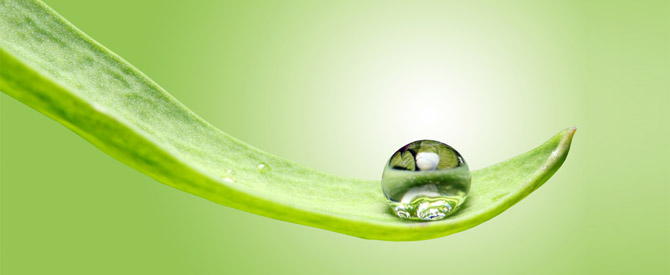When we give sincerely, cheerfully and readily, we bring joy into our own hearts and in the hearts of others. We become magnets for drawing prosperity into our lives. We gain blessings in the form of gratitude and build closer relationships with others. We earn karmic merits that bring us future happiness. There are many rewards to giving
But according to Vedanta, the spiritual science of life, these rewards are not the real reward of giving. And, it also questions whether we really “give” in the first place.
Do we really “give”?
We can only give what belongs to us. Are our wealth and possessions truly ours? If they were, they would be with us permanently. But nothing in this world is constant. Things change; sometimes we leave them, sometimes, they leave us. Everything comes to an inevitable end and we are eventually separated from everything in our life. A saint once said, “We meet only to part.”
When we think deeply about this, we realise that we own nothing.
If we were to take the time to carefully reflect on what we have, we will realise that everything is “borrowed” for our personal use for a period of time. At the end of our lives, we leave empty-handed.
Even our bodies are not ours. My guru, Swami Chinmayananda used to say that the food we eat is the “rent” we pay to live in the body. If we are delinquent on paying the rent, the body will kick us out!
If our bodies were truly ours, we wouldn’t leave them behind when we die. They are formed from the same elements that the world is made from—space, air, fire, water and earth. They disintegrate and merge back into those very same elements after death.
If we own nothing, then we can’t be givers, can we? What are we really doing when we “give?”
We are merely sharing our wealth and possessions with others. They were never meant to be hoarded but to be freely given away so others can use and enjoy them too. This way everyone can participate in and benefit from the flow of abundance in the universe.
The only thing that belongs to us
While it’s true that our wealth and possessions don’t actually belong to us, there is one thing that we own that we must give up—the ego. Giving up our ego brings the real rewards of life. Here’s why…
Vedanta refers to the ego as the notion of individuality. We think we are individuals with a particular body and mind. The body and mind are aspects of the human personality and not who we really are. Our real identity is eternal, blissful, changeless spirit (the Self) that is expressing and appearing as a human personality.
Our goal is to rediscover this divine spiritual essence within our hearts in meditation. This rediscovery will bring us complete fulfillment since bliss is the very nature of spirit. This is what we are really searching for in all that we do throughout our lives.
The ego notion gives rise to two other notions—the notion of being the doer of actions and experiencer of the results of those actions. Every time we act with this thinking, we reinforce the tendency to think in the same way. And so, these notions are perpetuated.
Vedanta explains that the ego cannot perform any action because its very existence and abilities come from spirit within. This false identity and the resulting two notions hold us back from being able to journey inwards to the Self.
Giving up these three brings the greatest reward—the rediscovery of the blissful Self.
How can we begin to do this?
Prayer of Surrender
Since we gain our abilities and faculties from the Self, It alone is the enabler and the real doer of our actions. Therefore, we offer all our actions to It with feelings of gratitude and surrender. When the results of actions come, we surrender those too. This discipline will dilute the ego and the other two notions.
There is a Sanskrit prayer of surrender which applies to all people, everywhere. Here’s what the words mean: Whatever I do with my body, speech, mind, sense organs or intellect and ego due to my own nature. I offer it all to the Supreme Lord.
You can listen to it and read the English word-for-word meaning in Prayer of Surrender.
Even if you don’t use the same words in this prayer, you can hold a feeling of gratitude and the intention of giving up your ego and the sense of being the doer and experiencer by remembering the divine and saying a simple, “For You”.
Aside from your material wealth, you can also give your good wishes, kind words, and your time. You can be patient with someone, stop and look into another’s eyes and really listen. You can share your insight and experience to uplift another.
Every aspect of your personality is a gift—your physical body, senses, your capacity to feel emotions and think rational thoughts are gifts from the divine. It’s only natural to want to express gratitude and give back.
Life itself is a gift and giving back out of a sense of gratitude fulfills the purpose of the gifts that we have. Swami Chinmayananda says, What you have now is a gift from Him. What you do with it is your gift back to Him.
Giving in a spirit of thankfulness is a sign of an advanced soul. One who gives from a sense of gratitude has reflected on life and the blessings in her life.
The real reward and ultimate goal of life
Surrendering our ego and our claim on being the doer and experiencer of our actions brings great inner rewards. We break down our pride and sense of ownership. There comes a growing sense of peace and happiness in life. The mind gains patience, fortitude, endurance, faith in the divine, and is better able to remain balanced in good and bad circumstances. The capacity to hold the mind in meditation becomes greater.
Eventually, this inner poise leads us to the realisation of our own blissful spiritual essence—the real reward and ultimate goal of life.
Like this post? Sign up for the free fortnightly Spiritual Solutions Newsletter and receive the latest articles, news and updates in your email inbox!













